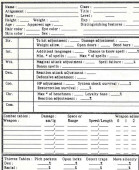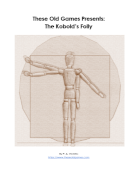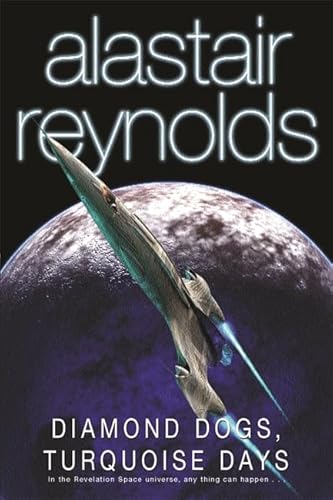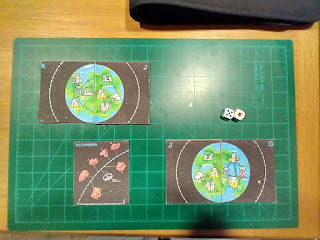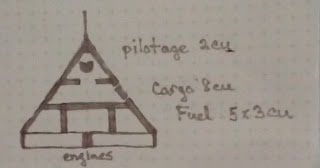In my last post, I hypothesized that the player could recover from the loss of their Antelope spaceship by pulling together a small team of pilots, medics, and engineers to scavenge in the Ruins found on so many planets.
While this is basically true, it takes a very long time. I used Random.org's dice generator to rapidly roll hundreds of dice. The primary limiting factor is loading a hopper (25 CU) or using an orbital shuttle (50 cu) to move goods around. The problem with this method is it takes a lot of time and money to do so. You can cache items to speed the process but the scenario becomes a little ridiculous and tedious.
If you are down with embracing the ridiculous you can reduce the tedium by purchasing items like repair units, fuel units, or GM bots right in the Spaceport. Once you have spent every penny on these items all you have to do is sit on them until you receive a good sales result. Picture Duke sitting on a pile of craters right in a hanger waiting for someone to happen by in need of item x, which he has cornered the market on. On Regari, a roll of 6 sales results in a 1.5 base price modifier. You are converting 1 secs. spent into 1.5 secs. per cycle. In a month or two, you should have enough to purchase a new Antelope.
If only you get over the fact that Duke is sitting on a pile of thousands of repair units or fuel units...
The reason this isn't an obvious solution is you cache a tremendous amount of items inside the Spaceport for a very short period of time. Like thousands of CU worth of goods. The rules don't place a limit on the number of items you can have only a limit on items you can move.
It is a very unsatisfying solution because it kills the game engine's balance. In fact, using this method breaks the economic restrictions that the game places on you. So long as you do not engage in any other activities such as RRR, there is zero risk due to a lack of opportunities to make contacts or otherwise experience negative effects.
Now I have further expansion possibilities because there must be a mechanic to offset the easy solution of not engaging in play to win. In solo play, this is not as dangerous as the solo player is playing for exploration not cheating their way through the money problem. It's just easier to fudge the rolls or be a bad timekeeper.
If you want to adapt Star Smuggler to an actual multiplayer game, then you need a solution to this possibility.
I think that creating a table of random events that can occur when you do not move or engage in activities would work to resolve this unique issue. The Star Smuggler system has many different built-in: scenarios that range from flavoring to pushing events that can speed world-building while not obviously punishing a lack of activity. A party of characters will need some downtime to stay centered on tasks, but a random table of events can spark new plans and ideas. Think of it as exposure without railroading like a solo game has to do.
Another cool idea for multiplayer options is to use randomly generated systems to express change. As time goes on a Spaceport could morph into a colony, city, or slum. This wouldn't happen overnight, but a referee could present the changes over the natural weeks and months which are hardcoded into the game system. The referee could even change the star charts as exploration opens new routes or even open up completely new systems.
This solo game system is remarkably robust for such a simple thing. A necessary limit in the system is how scattered the rules are within the events. For example, there exist psionics, grenades, and combat droids however, if haven't read every event you wouldn't even know. Also, combat is super tight. There are relatively few ways you can make changes without upsetting the game balance.
However, in using this as an actual RPG ruleset, the referee knows exactly what to expect. Change can come in other ways, such as the expansion of planetary systems, new events created by the players' choices, and the referee's goals for the game.
Most of my amazement and fascination with this game is how tightly integrated and edited it is. I spent a few days going through every event and rule, mapping out where each went to find loops or mistakes. There are a few loops, but as near as I can tell no actual mistakes which is a testament to how well thought out it is.
There are a few relics and oddities in the rules and events. For example, events are sequential from e001 to e199 but then hop to e400 before ending at e441. That leads me to believe that the game might have meant to have 200 more events. The rules do the same thing, flowing from r201 to r242 before hopping to r300+. Maybe there are 60 or so missing rules entries. Were that true, someone painstakingly edited them away without the benefit of a computer.
There is another option. Two people could have been working on the set at the same time and divided the entries between them which explains the gap. One person finished before the other but in order to maintain the document refused to reference unnecessary numbers or renumber what they had. Not surprising if you are using pen and paper or worse, a typewriter.
Personally, I believe this second option to be the more possible one. There is a subtle hint in e005. It is the only event that straight-up duplicates events:
"If you disable the controller and capture it, the event takes 1 hour and roll 1d6: 1-e117, 2-e017, 3-e059, 4-e117, 5-e017, 6-no effect."
This does not occur any place else in the rules. Omitting tension-building choices which hop through an intervening event before directing the reader/player back to make a different choice at the initial branch. This is a common trope in "choose your own adventure" books. It is different than duplication.
I believe in this case one of the e117 and e017 events was supposed to lead elsewhere but do not because those events were either edited away or simply not written.
A similar thing happens in the rules section for combat. The events and rules call out "sidearms" and "heavy sidearms" while a few areas mention "explosive weapons" and "armor piercing" weapons. I personally believe that this is the result of two authors being on the same page, but not the same word. Or perhaps they intended for there to be a couple of classes of weapons that were discovered to be unbalanced, like a machine gun or blaster rifle. Or maybe "too much like game, movie or TV show x."
It is pretty clear that the author used their personal experience at the game table to create a solo game. I find it kind of satisfying to reverse the process and use the ruleset for a multiplayer game.
What do you think?





